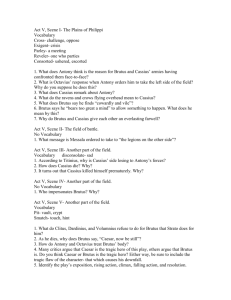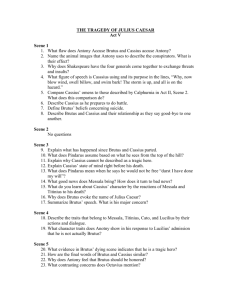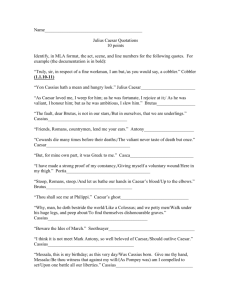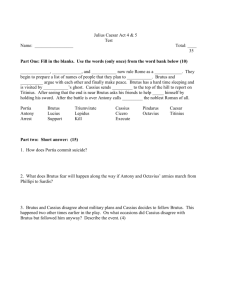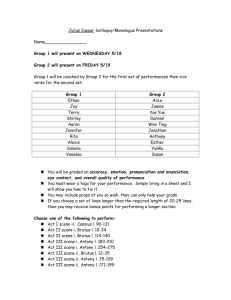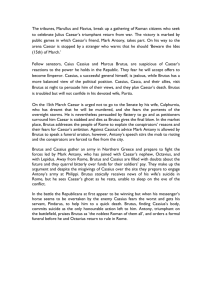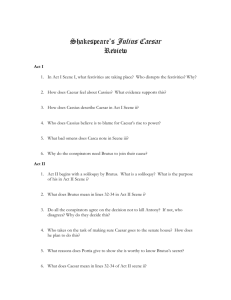Julius Caesar
advertisement
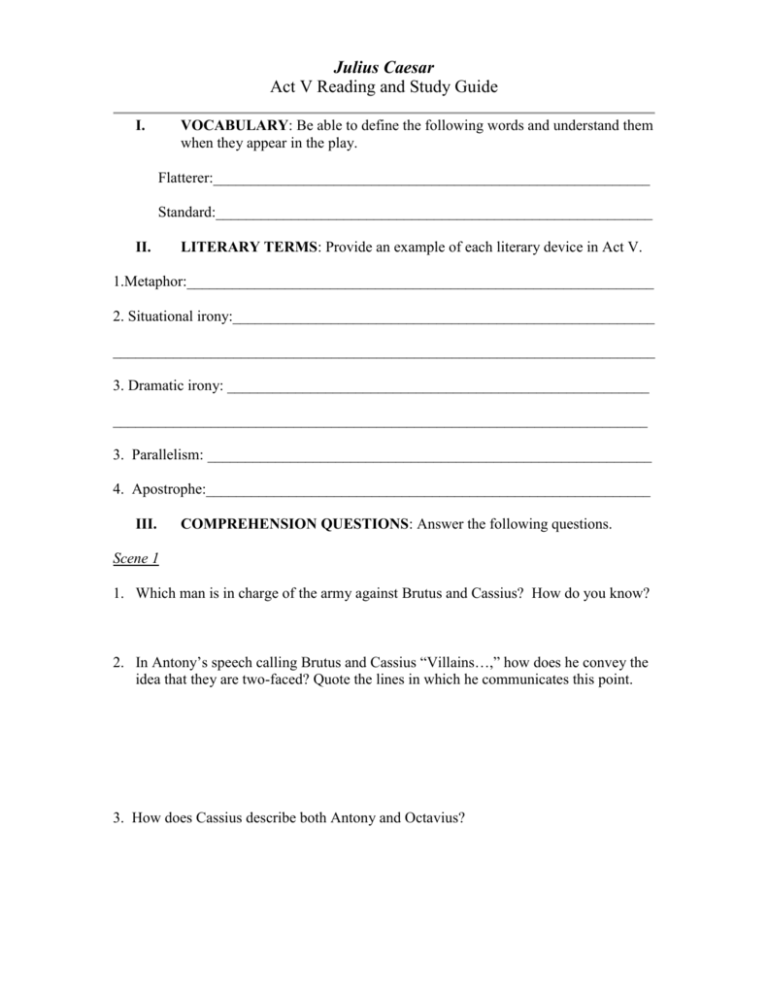
Julius Caesar Act V Reading and Study Guide I. VOCABULARY: Be able to define the following words and understand them when they appear in the play. Flatterer:__________________________________________________________ Standard:__________________________________________________________ II. LITERARY TERMS: Provide an example of each literary device in Act V. 1.Metaphor:______________________________________________________________ 2. Situational irony:________________________________________________________ ________________________________________________________________________ 3. Dramatic irony: ________________________________________________________ _______________________________________________________________________ 3. Parallelism: ___________________________________________________________ 4. Apostrophe:___________________________________________________________ III. COMPREHENSION QUESTIONS: Answer the following questions. Scene 1 1. Which man is in charge of the army against Brutus and Cassius? How do you know? 2. In Antony’s speech calling Brutus and Cassius “Villains…,” how does he convey the idea that they are two-faced? Quote the lines in which he communicates this point. 3. How does Cassius describe both Antony and Octavius? 4.What omens does Cassius describe to Messala? What do you think they symbolize? Does Cassius believe in them? 5. How does Brutus foreshadow his own later suicide? (What does he say he will not allow to happen?) Scene 2 6.At this moment, whom does Brutus think is winning the battle? Scene 3 7.Why does Cassius commit suicide? What type of irony does this event exemplify? 8.What does Brutus say that Caesar’s ghost is accomplishing? Quote the line. Scene 4 9.How does Lucilius prove his loyalty to Brutus? What type of irony does this scene exemplify? 10.What compliment does Antony pay to Lucilius as a result? Scene 5 11. According to Antony’s eulogy for Brutus, what motivated Brutus to participate in the conspiracy? Is Antony right? 12. How does Antony’s eulogy for Brutus make Antony a more appealing character than he was earlier in the play? Explain. 13. What does Act V as a whole reveal about Roman values? How do the characters seem to “rank” the importance of the following things: life, loyalty, honor, bravery, honesty, nobility? 14. Now that you have completed the play, who do you see as the tragic hero? What is his tragic flaw, and what is the error in judgment he makes as a result of this flaw? How does the error in judgment lead to his downfall? Hero: Flaw: Error in judgment and how it results from the flaw: How the error in judgment leads to the characters’ downfall: IMPORTANT QUOTATIONS in Act 5 Think not thou noble Roman That ever Brutus will go bound to Rome. He bears too great a mind. But this same day Must end that work the ides of March began An whether we will meet again, I know not. Therefore our everlasting farewell take. Forever and forever farewell, Cassius. If we do meet again, why we shall smile; If not, why then this parting was well made. (Brutus – 5.1.121-129) Caesar, thou art revenged, Even with the sword that killed thee. (Cassius – 5.3.50-51) O Julius Caesar, thou art mighty yet; Thy spirit walks abroad and turns our swords In our own proper entrails. (Brutus – 5.3.105-7) Our enemies have beat us to the pit. It is more worthy to leap in ourselves Than tarry till they push us. (Brutus – 5.5.27-29) This was the noblest Roman of them all . . . His life was gentle and the elements So mixed in him that nature might stand up And say to all the world “This was a man.” (Antony – 5.5.74, 79-81)

